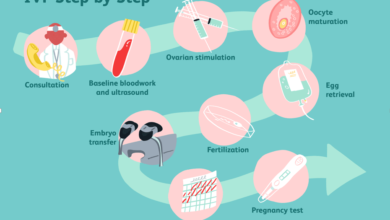Pulmonologist vs. General Physician: What’s the Difference?

A general physician, often referred to as a primary care doctor, is the first point of contact for most medical concerns. They diagnose and treat a wide range of common illnesses, manage chronic conditions, and provide preventive care through routine check-ups and vaccinations. General physicians coordinate patient care and refer individuals to specialists when specific expertise is required. They are trained to address overall health and well-being, offering guidance on lifestyle changes, medication management, and minor procedures.
Who Is A Pulmonologist And What Do They Treat?
A pulmonologist is a medical specialist focusing on the respiratory system, including the lungs, airways, and related structures. They manage conditions such as asthma, chronic obstructive pulmonary disease (COPD), pneumonia, tuberculosis, sleep apnea, and interstitial lung diseases. Pulmonologists also handle complex cases requiring advanced diagnostics or interventions like bronchoscopy. Patients often consult a pulmonologist when symptoms like persistent cough, shortness of breath, or abnormal imaging results require specialized evaluation. Their training allows them to diagnose and treat conditions that a general physician might not be equipped to manage.
Key Differences In Training And Expertise
General physicians complete medical school and a residency in internal medicine or family medicine, giving them a broad understanding of adult and sometimes pediatric health. Pulmonologists undergo additional years of specialized training after general medicine, focusing specifically on respiratory care, intensive care, and advanced diagnostic techniques. This additional expertise allows pulmonologists to manage complex and severe lung conditions that require targeted interventions. Understanding these differences helps patients identify the right professional based on their symptoms and severity.
Common Conditions Managed By General Physicians
General physicians address a wide variety of health concerns, including:
- Fever, infections, and minor injuries
- Hypertension and diabetes management
- Routine preventive screenings
- Digestive, urinary, and minor skin issues
They are also instrumental in lifestyle counseling, weight management, and mental health support. General physicians can stabilize patients before referring them to specialists when advanced treatment or specific diagnostic tools are needed.
Respiratory Diseases Specifically Handled By Pulmonologists
Pulmonologists focus on diseases affecting the lungs and respiratory system, including:
- Chronic obstructive pulmonary disease (COPD) and asthma
- Pneumonia and bronchitis
- Tuberculosis and other infectious lung diseases
- Sleep apnea and other sleep-related breathing disorders
- Pulmonary fibrosis and lung cancer
Their specialized training enables accurate diagnosis, use of advanced imaging, and development of individualized treatment plans. Pulmonologists also manage severe or chronic cases requiring long-term monitoring and interventions such as oxygen therapy or pulmonary rehabilitation.
When To See A General Physician vs A Pulmonologist
Patients with common symptoms like mild cough, fatigue, or fever usually start with a general physician. However, persistent or severe respiratory symptoms, unexplained shortness of breath, or abnormal chest imaging warrant a consultation with a pulmonologist. Early referral ensures accurate diagnosis and prevents complications. General physicians can help identify when specialized care is necessary and coordinate the referral process. Knowing when to see each type of doctor can reduce delays in treatment and improve outcomes.
Jaipur has become known for respiratory healthcare, offering advanced medical facilities, experienced specialists, and modern diagnostic tools. Patients benefit from well-equipped hospitals and clinics that handle both common and complex pulmonary conditions. Individuals seeking a pulmonologist in jaipur can access highly trained professionals who provide evidence-based care, including pulmonary rehabilitation, advanced imaging, and long-term disease management.
Diagnostic Tools And Procedures Unique To Pulmonologists
Pulmonologists utilize advanced tools for precise diagnosis and treatment, such as:
- Pulmonary function tests (PFTs)
- Bronchoscopy to examine the airways
- Imaging studies like chest X-rays and CT scans
- Sleep studies for diagnosing sleep apnea
Benefits Of Consulting The Right Doctor For Respiratory Issues
Choosing the appropriate doctor ensures timely diagnosis, proper treatment, and reduced risk of complications. Early consultation with a specialist can prevent disease progression and enhance quality of life. Proper referrals also allow patients to access the right interventions and monitoring strategies, particularly for chronic or complex conditions.





